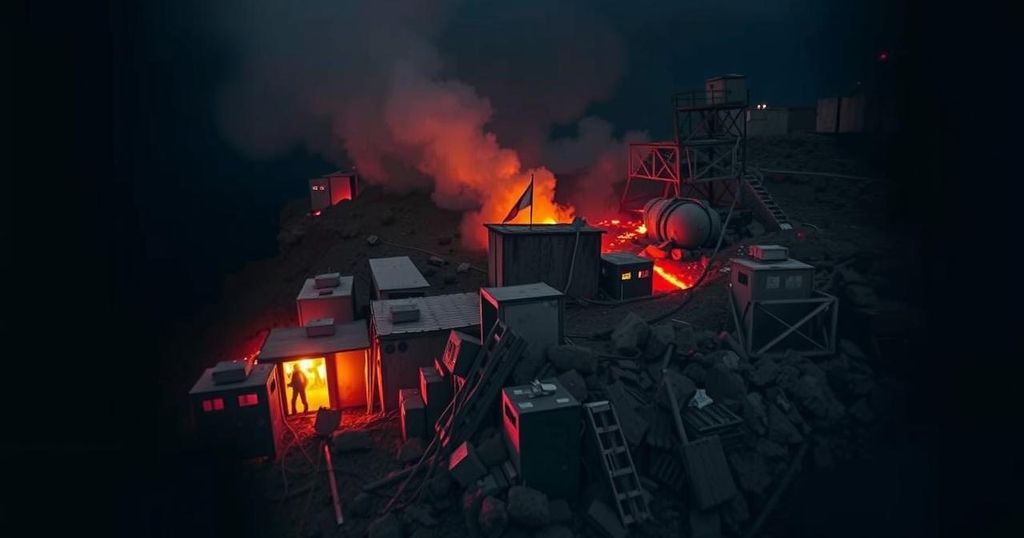On November 29, 2024, Israeli airstrikes hit Hezbollah smuggling sites in Syria, violating a fragile ceasefire established on November 27. Both Israel and Hezbollah accuse each other of ceasefire violations amid ongoing tensions and displaced citizens’ return to their homes. The volatile situation is further complicated by unrest in Syria, jeopardizing regional stability.
On Saturday, November 29, 2024, the Israeli military reported that its aircraft targeted Hezbollah weapons smuggling facilities along the Syria-Lebanon border, challenging the integrity of a recent ceasefire effective from November 27. The military stated that these strikes were a response to ongoing violations perceived from Hezbollah, which continued sporadic conflicts despite the ceasefire intended to halt months of hostilities between the parties. Reports indicate breaches of the agreement by both sides, creating an atmosphere of unease as displaced individuals in Lebanon began returning to their homes amidst warnings of ongoing risks. Furthermore, an Israeli drone was reported to have struck a vehicle in a southern Lebanese village, suggesting a continued presence of military engagements in the region.
The ceasefire was brokered by the United States and France, promoting a strategy wherein Hezbollah was expected to withdraw north of Lebanon’s Litani River while Israeli forces were mandated to pull back to their designated border areas. However, both parties have accused one another of transgressions since the ceasefire began. This precarious stability is further complicated by territorial unrest in neighboring Syria, marked by renewed insurgent activities in Aleppo, further destabilizing an already volatile regional environment. As such, despite the ceasefire, tensions remain high, with significant humanitarian concerns highlighted by the ongoing displacement of Lebanese citizens.
The ongoing conflict between Israel and Hezbollah has intensified significantly since October 8, 2023, when Hezbollah launched attacks on Israel in support of Hamas’s actions against southern Israel. Following nearly a year of low-intensity conflicts characterized by exchanges of fire across the border, Israel escalated its military response through extensive airstrikes targeting Hezbollah infrastructure. The recent ceasefire, brokered by international powers, aimed to establish a pause in hostilities while facilitating the withdrawal of military operatives from contentious areas. However, the multi-sided nature of the conflict, including tensions within Syria itself, continues to pose challenges to peace efforts in the region.
In summary, the Israeli airstrikes targeting Hezbollah weapons sites underscore the fragility of the ceasefire established just days prior. Both Israel and Hezbollah have accused each other of violations, indicating a tense status quo that complicates the return of displaced populations and heightens regional instability. While the situation remains dynamic, the broader implications of continued hostilities threaten not only peace along the Israel-Lebanon border but also regional security amid ongoing crises in Syria.
Original Source: apnews.com






